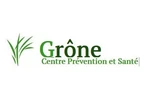The maximum performance coach that transforms successfully people into championsTHIS IS WHAT SEPARATES CHAMPIONS FROM AVERAGE PEOPLE • Mindset A champion mindset is a potent cocktail of core beliefs and positive attitudes that propels individuals towards excellence. It encompasses a growth mindset, where challenges are seen as opportunities, and failures are viewed as stepping stones towards future success through personal development improvement. In tandem, an abundance mindset accompanies a champion's journey. This implies that success is an unlimited resource where everyone can thrive because the person has overcome their limiting beliefs. • The right coach However, even champions require guidance. This is where coaching steps in. An elite performance coach acts as a catalyst, providing personalized strategies to unlock the full potential that lead to the client's inner champion. He prioritizes the expression of leadership skills, builds confidence, sets smart goals and offers a structured path to success thanks to personal development plan. Through targeted life coaching, individuals are equipped with the tools to navigate challenges, harness their strengths, and notice a performance improvement. Ultimately, a champion mindset, complemented by expert coaching, is the blueprint for achieving unparalleled success. With over three decades of experience as a judo trainer, Ouly Reymond is this maximum performance life coach for high achievers who seek a wealth of expertise to guide them towards excellence. His journey in judo has not only shaped his understanding to focus on goals but has also instilled a profound sense of discipline. As a judoka, he's achieved the title of World Vice-Champion master. This accomplishment reflects not only his commitment to personal growth through consistency, patience and perseverance but also his dedication to mastering the principles of peak performance. He's seamlessly blended his martial arts background with a diverse range of experiences, helping individuals transcend their limiting beliefs and unlock their full potential. How ? Because more than 20 years of career as an osteopath and real estate investor have forged the experience that has led Ouly to success in sport and health as well as in business through 3 successful companies. That’s why he is the expert that helps people develop a solid discipline for a strong body and mind leading to concrete results. On a mission to impact one million lives, individuals can embark on a transformative journey of personal growth and achievement by following his principles daily. All these combined skills lead to Ouly Reymond’s quote : « While it’s easy to improve an average person, difficult to make someone who is already good very good, it is my strength to transform them into champions when they are already very good. » Ouly collaborated with the best selling author and motivational speaker Brian Tracy on their book, "Succeeding in Business in Any Market.", available here : https://oulyreymond.succeeding-in-business.com/ . This personal development expert is also known for many motivational and inspiring quotes. This powerful collaboration merges Ouly's business expertise with Brian Tracy's extensive knowledge. This book aims to equip successful entrepreneurs, managers and top leaders with the essential strategies, principles, and abundance mindset to lead to fantastic achievements in business and attract money regardless of their niche and market in any economic climate. It will help adopt a growth mindset, successful strategies, and aim to achieve high performance through excellence, leadership qualities and leadership traits that are key to business and personal success and fulfillment. Ouly plans to become a world class influencer, he will launch a podcast named ALPHA PERFORMANCE with Clementina Godwin. His new book : « Build your empire, become an ALPHA » will be published in 2024 while he is on the path to be an inspirational leader as a Tedx speaker. He is definitively the The maximum performance coach for leaders who want to reach their full potential Links: coaching: https://www.maximium-performance.com/ osteopathy: https://osteo-coach-sante.ch/ Books: https://www.maximium-performance.com/books linked in: https://www.linkedin.com/in/oulyreymond/ linktree: https://linktr.ee/oulyreymond FB: https://www.facebook.com/ouly.reymond/ IG: https://instagram.com/oulyreymond_coachenor Tiktok: https://www.tiktok.com/@oulycoach More than 20 years of career as an osteopath and real estate investor have forged the experience that has led Ouly to success in sport and health as well as in business through 3 successful companies. As a veteran judo world vice-champion, his peak performance and competitive knowledge are transmitted to help many clients develop a solid discipline for a strong body and mind leading to concrete results. Currently as a maximum performance coach, he now offers an overall service that integrates all of his expertise leading from mindset to successful transformation. Ouly helps people to explore their maximum potential
















